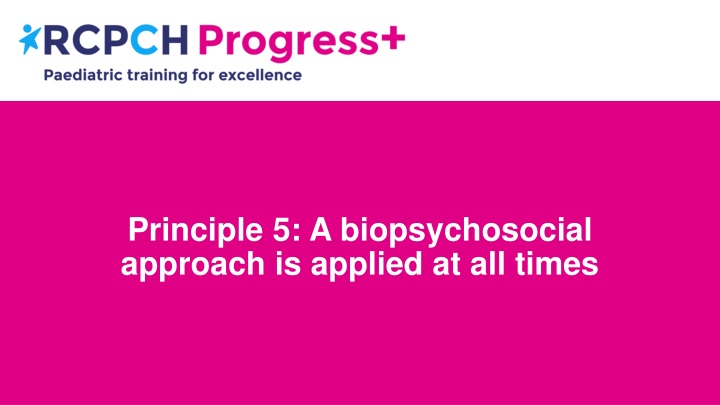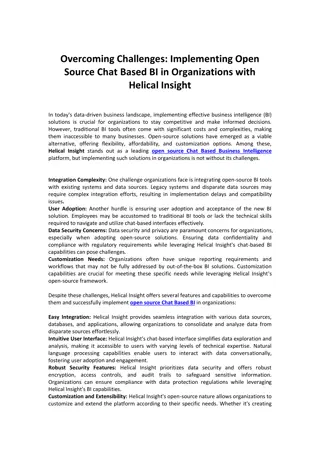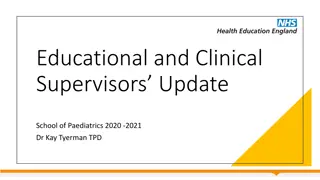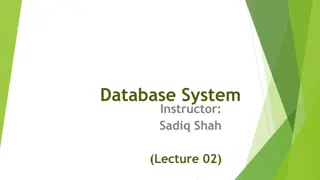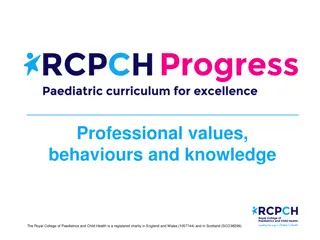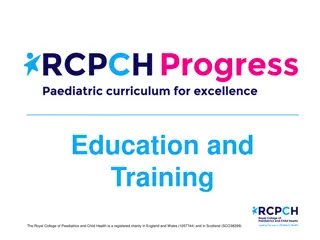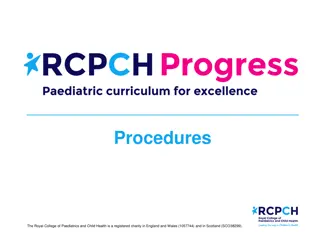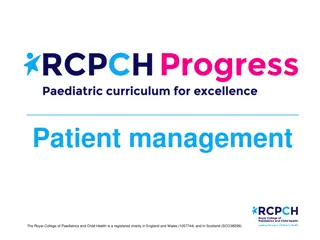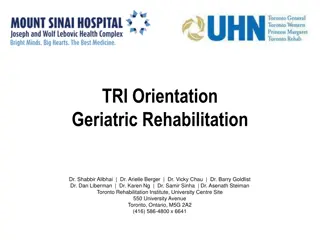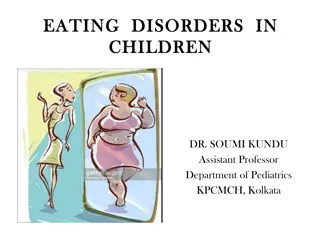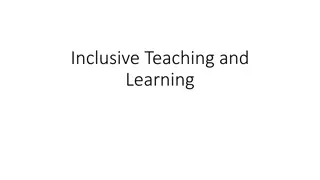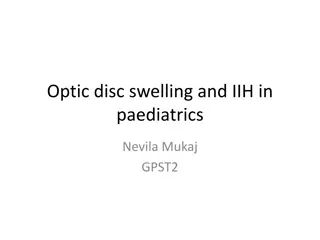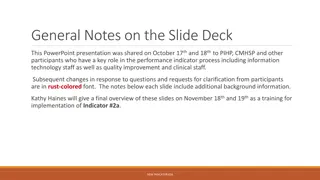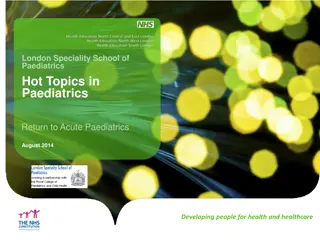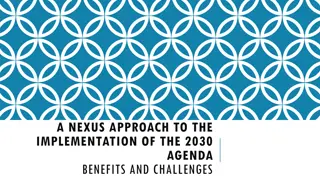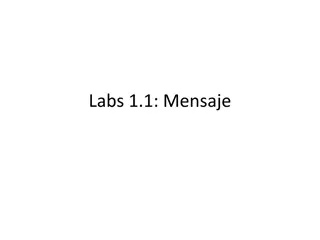Implementing a Biopsychosocial Approach in Paediatrics
In paediatrics, good patient care necessitates a biopsychosocial approach, understanding biological mechanisms of health, psychological and social aspects, and holistic engagement with patients and families. This involves considering psychological and social factors in patient experiences, reflecting on cases, and collaborating with allied health professionals for better support.
Download Presentation

Please find below an Image/Link to download the presentation.
The content on the website is provided AS IS for your information and personal use only. It may not be sold, licensed, or shared on other websites without obtaining consent from the author.If you encounter any issues during the download, it is possible that the publisher has removed the file from their server.
You are allowed to download the files provided on this website for personal or commercial use, subject to the condition that they are used lawfully. All files are the property of their respective owners.
The content on the website is provided AS IS for your information and personal use only. It may not be sold, licensed, or shared on other websites without obtaining consent from the author.
E N D
Presentation Transcript
Principle 5: A biopsychosocial approach is applied at all times
Principle 5: A biopsychosocial approach is applied at all times In paediatrics, good patient care requires an understanding of the biological mechanisms of health and illness. It also requires an awareness of the psychological and social aspects of the lives of the children and young people we meet. Becoming attuned to these aspects of the lives of our patients requires thought and practice. It is important to reflect on what we learn from engaging holistically with patients and their families.
This diagram describes a patients experience of their illness Biological cause of illness Psychological aspects Social protective and perpetuating factors Patient experience of illness
Psychological Social Beliefs Attitudes Mental health Emotional health Self-esteem Impulsivity Personality Economic Status Religious beliefs Culture Peer networks Education Family background ACEs* Stress Relationships Social support Health/ Illness Physical activity Diet Drugs and alcohol Sexual relationships Gender Sleep Coping skills Temperament Sex Disability Genetic traits Immune function Medication effects Biological * ACEs Adverse Childhood Experiences
Step 1: Select your case What aspects of the psychosocial lives of our patients should we consider? Here are some examples... Friends and peers at school Adverse Childhood Events Family support Cultural/religious traditions Child or young person Coping mechanisms Mental health problems Drugs and alcohol
Step 2: Reflect on what you learned from the case Consider what it was about the case that you found challenging and ask yourself why this was. Did you gain a different perspective by examining the psychological and social aspects of the patient s illness journey? How could the patient and family be better supported? Discuss patients with allied health professionals psychologists, occupational therapists and social workers to understand their perspective and what they can offer.
Step 3: Translate your experience into a learning opportunity Your trainer may complete a mini-cex or ACAT if you were directly observed managing an aspect of a case, or a CBD if you were discussing a case retrospectively. A DOC or HAT may also be a useful way of encouraging you as a trainee to consider and discuss biopsychosocial elements of patient care. For trainees, your personal reflection on how biopsychosocial factors have impacted on a patient and their condition can be a useful way to stimulate thought on this.
Step 4: Link to the curriculum Look at the curriculum and link your assessment to the relevant domains. It's worth looking through all domains to see if there are any aspects you hadn't considered.
Always think about the holistic long-term sequelae of illness on children! Society Employment Moral code Social wellbeing Education Mental health Individual Disease Biology Behaviour
For more ideas, see the case studies for Principle 5 www.rcpch.ac.uk/training-principle-5
Find out more on the RCPCH website www.rcpch.ac.uk/progressplus
